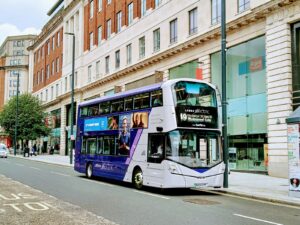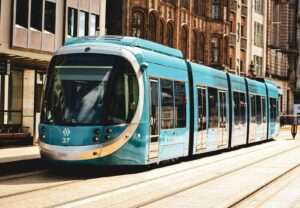New Artificial Intelligence (AI) traffic signal control will be trialled on Cambridge’s busiest roads in order to improve traffic flow and reduce air pollution.
The Vivacity camera-based AI sensors are able to identify different types of road users and adjust traffic signal timings accordingly, thus allowing different modes of transport to be prioritised.
Thanks to the new project, funded by the Greater Cambridge Partnership (GCP), a 12-month trial will use the technology to investigate how the impact it has on improving traffic flow, reducing journey times and conseqently reducing air pollution from idling vehicles.
Trials will start in the summer and a report on the initial findings will be available in Spring 2022.
The pilot scheme will be trialled at the following junctions:
- Hills Road-Brooklands Avenue
- Hills Road-Cherry Hinton Road
- Cherry Hinton Road-Clifton Road
- Robin Hood corner (Cherry Hinton Road-Queen Edith’s Way)
If the trial proves to be successful, the GCP will consider how further investments in AI traffic signals could be rolled out in the future.
Claire Ruskin, the executive board member for the Greater Cambridge Partnership and Chair of the Smart Cambridge Working Group, said: ‘We know our traffic lights need to be more intelligent and we are finding new technology solutions that can help the way people make their daily journeys.
‘These new sensors can monitor different types of road users, and use that data to change traffic flows, potentially helping to cut congestion and improve air quality. We will use the data to inform future projects and interventions.’
Photo Credit – Greater Cambridge Partnership

















Leave a Reply